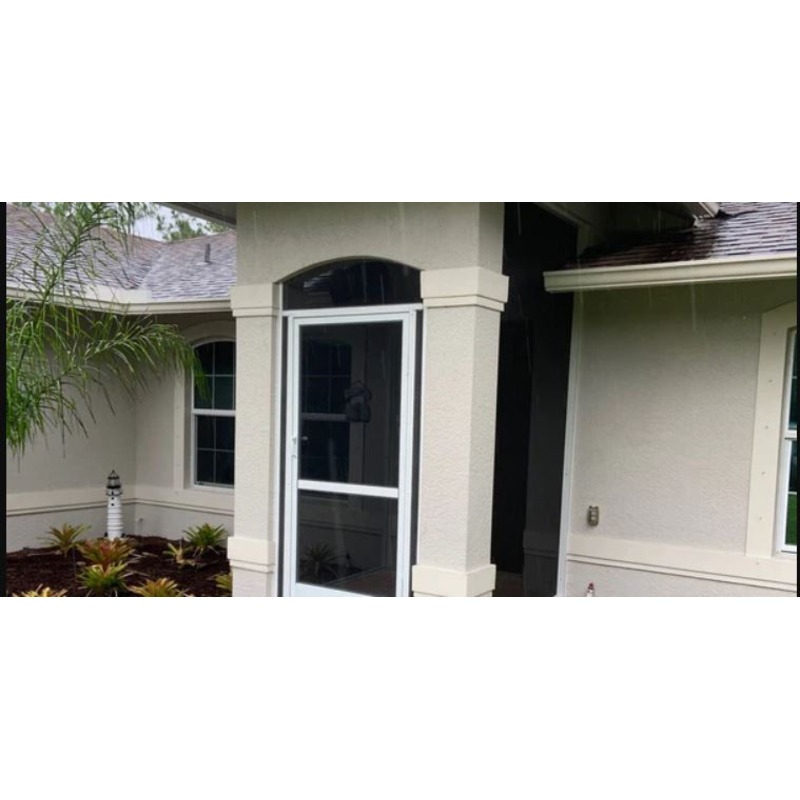Window screens are an often overlooked yet essential component of modern homes and buildings. These versatile installations provide a range of benefits, from keeping insects at bay to improving air quality and enhancing the aesthetic appeal of a property. This article delves into the various types of window screens, their benefits, and considerations for choosing the right screens for your needs.
Types of Window Screens
Window screens come in several types, each designed to meet specific requirements and preferences.
Fiberglass Screens: Fiberglass is the most common material used for window screens. It is durable, flexible, and resistant to corrosion. These screens are easy to install and maintain, making them a popular choice for many homeowners.
Aluminum Screens: They are ideal for areas with high traffic or where pets might damage more delicate materials. Although they can corrode over time, proper maintenance can extend their lifespan significantly.
Pet-Resistant Screens: These screens are made from heavy-duty materials designed to withstand the wear and tear caused by pets. They are perfect for households with cats or dogs that may scratch or push against the screens.
Solar Screens: Solar screens are designed to reduce heat and glare from the sun. They are made from special materials that block a significant amount of UV rays, helping to keep indoor spaces cooler and reducing energy costs.
Retractable Screens: Retractable screens offer the flexibility of being drawn open or closed as needed. They are an excellent option for doors or windows that require an unobstructed view or access when the screens are not in use.
Privacy Screens: These screens are designed to provide privacy while still allowing airflow. They are typically made from materials that offer a one-way view, ensuring that you can see out while preventing outsiders from seeing in.
Benefits of Window Screens
The benefits of window screens extend beyond just keeping bugs out. Here are some key advantages:
Insect Protection: The primary function of window screens is to keep insects, such as mosquitoes, flies, and bees, out of the house. This is especially important in regions where insect-borne diseases are prevalent.
Improved Airflow: Window screens allow you to open your windows and let fresh air in without worrying about insects. This can significantly improve indoor air quality and reduce reliance on air conditioning systems.
Enhanced Security: Some window screens are designed with additional security features, such as reinforced frames and locks. These screens can help prevent break-ins and provide an added layer of protection.
Energy Efficiency: Solar screens can help reduce cooling costs by blocking a significant portion of the sun’s heat. This not only makes your home more comfortable but also lowers energy bills.
UV Protection: Solar screens and certain other types of window screens can block harmful UV rays. This protects your skin and prevents your furniture, carpets, and artwork from fading.
Aesthetic Appeal: Modern window screens are available in various colors and styles, allowing you to enhance the visual appeal of your home. Custom screens can be tailored to fit the specific design of your windows, contributing to a cohesive look.
Choosing the Right Window Screens
Selecting the right window screens involves considering several factors, including your specific needs, the climate in your area, and your aesthetic preferences. Here are some tips to help you choose the perfect screens for your home:
Assess Your Needs: Determine what you need from your window screens. If insect protection is your primary concern, standard fiberglass or aluminum screens may suffice. For households with pets, opt for pet-resistant screens.
Consider the Climate: In hot and sunny climates, solar screens can be particularly beneficial. They reduce heat gain and glare, making indoor spaces more comfortable. In areas with high insect activity, durable and tightly woven screens are essential.
Think About Maintenance: Different materials require varying levels of maintenance. Fiberglass screens are easy to clean and maintain, while aluminum screens might need more attention to prevent corrosion. Consider how much time and effort you are willing to invest in upkeep.
Evaluate Aesthetic Preferences: Window screens come in a variety of styles and colors. Choose screens that complement the design of your home. Custom screens can be made to fit unique window shapes and sizes, ensuring a seamless look.
Check for Compatibility: Ensure that the screens you choose are compatible with your existing windows. Some windows might require specific types of screens or frames for proper installation.
Budget Considerations: Window screens are available at various price points. Determine your budget and find screens that offer the best value for your money. Keep in mind that investing in high-quality screens can save you money in the long run through reduced energy costs and increased durability.
Installation and Maintenance
Proper installation and maintenance are crucial for ensuring the longevity and effectiveness of your window screens. Here are some tips for installation and care:
Professional Installation: While DIY installation is possible, professional installation ensures that your screens are fitted correctly and securely. Professionals have the tools and expertise to handle different types of screens and window frames.
Regular Cleaning: Clean your screens regularly to maintain airflow and visibility. Use a mild detergent and a soft brush to remove dust and debris. For stubborn stains, a mixture of vinegar and water can be effective.
Inspect for Damage: Periodically check your screens for any signs of wear and tear, such as tears, holes, or loose frames. Address any issues promptly to prevent further damage.
Conclusion
Window screens are a valuable addition to any home, offering a range of benefits from improved comfort and air quality to enhanced security and energy efficiency. By understanding the different types of screens available and considering your specific needs and preferences, you can select the perfect screens for your home. Proper installation and maintenance will ensure that your screens provide lasting performance and continue to enhance the quality of your living environment.





Comments